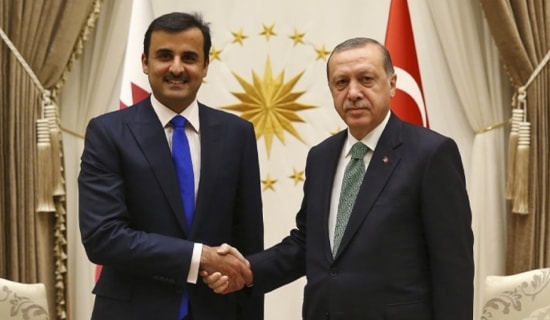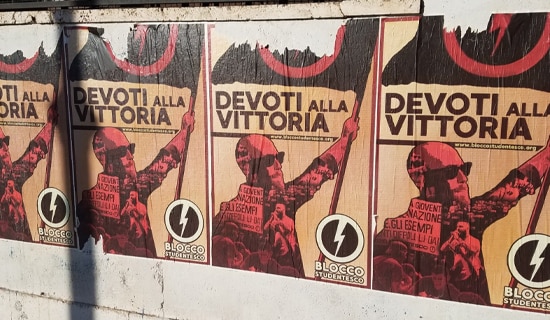Following is the full text of an article by MEMRI South Asia Studies Project director Tufail Ahmad, which was originally published by The New Indian Express on June 18, 2015.
"A defining principle of modern civilization is this: no one is above the law. This idea is the basic organizing principle of politics and law in the countries of the free world, which include European nations, the UK, the United States, India, Australia, New Zealand, Japan and others. Unlike the free world, rulers in the countries of unfree world such as Cuba, Saudi Arabia, Russia, North Korea and China are above the law, or at the least the law is subservient to them or to the ruling political parties headed by them. The idea that presidents, prime ministers, queens and kings are subject to the rule of law is a distinct legacy of Magna Carta, or the Great Charter
"Eight hundred years ago, on June 15 in 1215 CE, King John of England was forced by rebellious barons to grant Magna Carta, which engendered a number of rights that would later become the legacy of democratic nations. The king was facing rebellion due to different reasons including mobilizations for war on France and military defeats, mismanagement of personal affairs including auctioning his wife Isabella, and widespread misrule that affected merchants. Magna Carta, inked at Runnymede 20 miles west of London, was part a grant from King John and part a contract and peace treaty between him and the barons. In the words of British Prime Minister David Cameron, Magna Carta altered 'forever the balance of power between the governed and the government.'
"Before Magna Carta, kings and queens exercised arbitrary powers, though they did adhere to some divine laws. However, Magna Carta ensured for the first time that sovereign rulers were brought under man-made law, or under constitution. In his book Magna Carta, Nicholas Vincent observes that the 'fundamental principles underlying the negotiation of Magna Carta' were appeals to 'necessity' and 'reason', with both the terms being 'divorced from the scriptural or theological imperatives'. Today, the phrase 'Rule of Law' has become an essential creed of modern democracies. Magna Carta initiated not only a tradition of rule of law, it also engendered a host of rights and liberties for ordinary people in the free world.
"In jurisprudence, its legacies include protection of individuals from arbitrary arrest, a due process of law and fair trial, of no one being above the law, the ideal that justice delayed is justice denied, and that justice cannot be sold. Magna Carta granted right to religious freedom and ensured that governments cannot levy taxes without people's approval; for example, budgets of all democratic countries today must be passed by their parliaments elected by people. It also included liberties such as rights of women and widows, right of traders to travel, protection against illegal seizure of property by officials, introduction of standard measures and weights, so on.
"Sir Robert Worcester, chairman of the Magna Carta 800th Anniversary Commemoration Committee, wrote recently: 'The principles contained in Magna Carta now affect the lives of nearly two billion people in more than 100 countries. It is an exceptional document on which all democratic societies have been constructed.' Individual liberties granted by Magna Carta were later incorporated in the American Bill of Rights 1791, the UN Universal Declaration of Human Rights 1948 and the European Convention on Human Rights 1950.
"These liberties were also protected by the Indian Constitution under Articles 14 (equality before the law), 19 (freedom of speech and assembly), 21 (right to life and liberty), 32 (right to constitutional remedy) and 300-A (right to property), among others.
"However, a vast number of 1.26 billion Indians fail to benefit from the freedoms of Magna Carta. Let's look at real-life cases. In Kanpur, Umakant Mishra was accused of stealing Rs 57.60 and remained suspended from his job as a postman for 30 years, finally being absolved of the charges after 350 court hearings. In Delhi, 19-year-old vegetable seller Shamsuddin spent a year in jail on charges of stealing Rs 200, as he did not have Rs 10,000 to obtain a bail bond. Khalid Qureshi spent 13 years in jail for stealing Rs 90, finally being acquitted after the Delhi high court ruled that he was arrested due to mistaken identity. There are numerous such cases reported from across the country. Ideally, our justice system should work like it worked swiftly to give bail to Bollywood actor Salman Khan within hours of conviction this year.
"In November 2011, it was estimated that more than 14,000 Indians died in custody mostly due to torture during 2001 to 2010. In November 2013, the Supreme Court was informed that 12,000 Indians died in jail and police stations over a course of five years. In several cases, courts in Indian towns have convicted policemen of custodial killings in recent years. In March, a Delhi court convicted four policemen for torturing a man to death in custody. Cases of custodial killings continue to be reported from across the country. Similarly, there are numerous cases of riots in which Indians have been killed without concern for law. Yet the Indian justice system does work but it works very slowly and to the disadvantage of the poor.
"As the world celebrates the 800th anniversary of Magna Carta, one should bear in mind that individual liberties incorporated in the Indian Constitution do not reach the masses. This is complicated by a corrupt policing system and a sluggish judiciary. The biggest obstacle to ensuring a fair system of justice and liberty for Indians seems to be the backlog of cases. As per available statistics, the number of pending cases with the Supreme Court was nearly 65,000 as on December 1, 2014. The figure up to the year ending 2013 was nearly 45 lakhs for the two dozen high courts and 2.6 crore for the lower courts. Unless the Indian government works on an emergency basis to redress this backlog of cases, the rule of law will remain a mirage for the masses and their capability to live a life in liberty a crushing nightmare."




